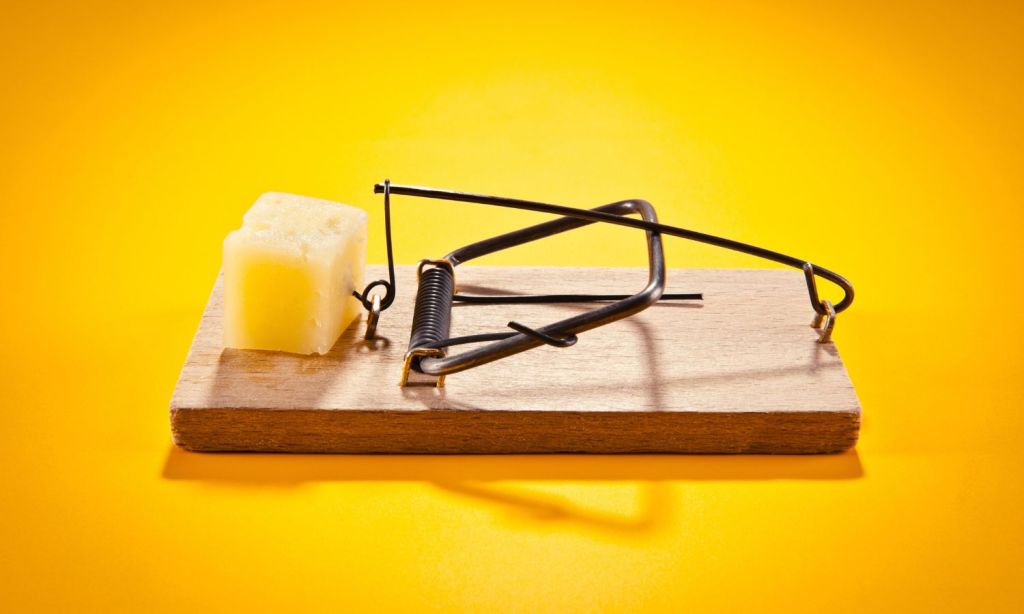It’s your classic international stand-off: Australia and the world’s largest economic bloc, the EU. These forces both want to strengthen trade ties and bolster their economies, but they can’t agree on the naming of cheese.
Talks have stalled, arms have been folded, and negotiating tables have been walked away from. In the background, China and Russia look on gleefully as the West tries in vain to route the influence of the war in Ukraine and increased Sino-dependence.
If only we could decide once and for all what to call that white cheese you get in crumbly blocks that goes great in a salad. The world holds its breath as Australia screams the word ‘feta’ and Europe cries ‘sparkling cheese’.
That we’ve come to a deadlock over the naming of dairy and other ‘regionally specific’ food items is not new. Back in February, the Australian Dairy Industry Council warned that the “Impact of a strict agreement on GIs cannot be underestimated” and that it would devastate the local market.
“Forcing cheesemakers to change the name of their product and denying them the right to use their branding due to evoking European heritage is unacceptable,” they said.
“The effects of this will be greatly felt when it comes to farmgate prices, demand for raw milk, and the unfair displacement of local Australian producers and quality-made products, putting up to 1000 jobs at risk.”
A Cheese by Any Other Name
For, no joke, for five years, the allied trading partners have been at loggerheads over the naming of more than 400 products in the Australian market. These include things like feta, halloumi, mozzarella, parmesan, prosciutto, and Irish cream liquor.
The EU has notoriously protective naming rights when it comes to products sold in the region. It’s why only sparkling wine produced in the French Champagne region can bear the geographical name. Similar protective rules over other products that have regional historic ties are strictly adhered to in the EU in an effort to ensure producers in those regions aren’t losing out to imitations.
Despite Australia having strong consumer associations with European naming conventions for certain food and drink, not to mention historical ancestry ties, the EU doesn’t look like they’re going to allow our ‘Australian feta’ to start undercutting the hard work of Greek dairy farmers.
On the table sits potentially $94 billion in better trading access, allowing Australian producers of beef, lamb, sugar, cheese, and rice greater access to the protective EU market. But the Australian Dairy Farmers Association have said it will face $75 to $90 million in costs if they are forced to give up naming rights to popular cheeses. On the other side of the fence, EU cheese producers could lose $220 million and 1000 jobs if Australian cheese were to hit EU shelves bearing European names.
Agriculture Minister Murray Watt has said that the naming of cheeses is an “emotional issue.”
“This isn’t just an emotional issue for European producers, it’s an emotional issue for Australian producers,” he told the ABC in June.
“We’ve had a lot of migration post World War II from Europe to Australia.
“That has seen our producers bring their own products from their home countries and make them here.”
Watt argued that if Australia “can’t get a good deal, we’re better off not doing one”.
Feta Together
So-called ‘make-or-break’ talks were held in Brussels to try and sort out the naming conventions yet again. The talks… broke. But another round is scheduled for August in which the EU is confident that an agreement can be reached.
The Secretary-General of the EU foreign office, Stefano Sannino, is currently touring the Pacific region in an effort to bolster trade with Europe. He has told The Age that this fight is over much more than cheese. With Europe seeking to diversify its trading partners, having cut ties with Russia, Sannino sees the trade deal as instrumental in combating Russian aggression.
“This is a situation that is showing us in a very graphic way how much a number of countries have become disrespectful of the rules that we have given to ourselves, [countries] that are trying to push things through force … or the use of a number of other instruments,” he said,
“It’s not only force: it’s disinformation, it is cyber, it is hybrid, it’s the weaponisation of policies, it’s economic coercion, and so on.”
Australia too has been on the receiving end of aggressive trade policies. After Prime Minister Scott Morrison called for an investigation into the origins of COVID-19, China responded with a 212% tariff on Australian wine. The export market to China plummeted from $1.2 billion in 2020 to $12 million last year, and Aussie vineyards suffered major setbacks.
It’s incidents like this that demonstrate why Australia needs to land big trade deals with partners like the EU. Sannino is certain that we can sort this one out.
“We are like-minded partners, we need each other, especially in this moment. There is still a little bit of work that needs to be done, but I believe that we will eventually get there,” he said.
On our side, Trade Minister Don Farrell has recently said that 2023 will be the year we finally reach an agreement – or walk away. Still, he has said that he’s “optimistic” about getting a result.
Other countries, like Canada and New Zealand, have given in to the EU and given up naming rights over products with European-origin names. Australia, for now, stands firm.
Related: Is This Australia’s Most Expensive Cheese Toastie?
Related: Five Road Trips Every Australian Cheese-Lover Needs to Embark on
Read more stories from The Latch and subscribe to our email newsletter.

